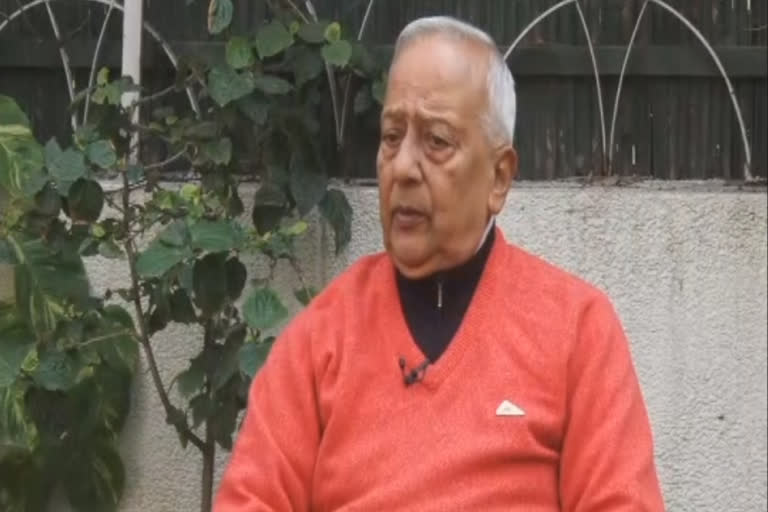New Delhi:With the ongoing debate of the Citizenship Amendment Act (CAA), National Register of Citizens (NRC) and National Population Register (NPR) and what measures is the Supreme Court is taking to safeguard the Constitution amidst various protests, ETV Bharat spoke to Yogendra Narain, a retired IAS officer and former Secretary-General of Rajya Sabha (2002-07) about the functioning of Indian constitution and the kind of aims and targets its set to achieve.
Here is the interview with Yogendra Narain for ETV Bharat:
Q- How has the behavior and attitude change in parliament over the decades for the better or worse?
According to me, newly-joined members of parliament in both the houses (Upper House and Lower House) are well educated, learned and are vocal.
At the same time, there has been a denigration of values. When I was a Secretary-General, I had this famous case of Madhya Pradesh's local area development scheme scam. In that scam, some members of Parliament took money for sanctioning projects. In another scam, an issue came up when some of the members of parliament took cash for asking particular questions. So, I would say that the values of the earlier era were much higher when compared to the current situation.
So, overall, moral values declined but at the same time very highly educated and well-read people.
Now, we have a plethora of parties. There are more than 1200 parties registered with the Election Commission of India. Though only 250 to 300 participate in the elections, the fact is that we have a variety of parties.
Also, now we usually have a collation government and they are truncated by the needs, feelings and emotions of the supportive parties or mainly regional parties.
Moreover, now the regional problems have come to play a major role in the discussions in the parliament, which is a healthy feature as we are a federation, and we have these states with us and their local legislators are there also.
But, the problem is parliament is actually meant for discussions on the items in the central list in the constitution. But, the amount of time we now spend on special mentions or call attention motions pertaining to states' subjects is very high, therefore it dilutes the main thrust of the federation of parliament taking over only discussions of central subjects.
But, there is a balance and the balance is maintained by the presiding officers as they play a very vital role and then we had a new introduction of the word 'parties'.
So, the fact is that in parliament, we see parties actually ruling the discussions and not individual members of parliament. The members of parliament individually expected to tow the party line, whether they like it or not. Because, if they oppose it, or publicly speak against the policies of the party they come under the anti-defection law, earlier, there was no law in the constitution as such.
So, I see this as a decline. As I would value the independent view of parliamentarians rather than party views.
And therefore the parties have taken a stranglehold over parliament with this anti-defection law and it needs to be corrected. The other fact that I would bring to your notice is that the constitution envisaged a federal structure. But, the number of times Article 356 is being used for President's rule is more than 100 times. So, in a federation, we see that time to time federating units being de-recognized in the sense that their legislations have become inactive or their legislative functions have become inactive or their functions are being taken over by the parliament. This is another decline I see in our constitution.
And then it comes for approval in Parliament and then the parties take up their stand whether they are going to approve it or not, whether right and wrong. So, here again, I would say that individual views of the states which Rajya Sabha should represent are not present at all.
These are some of the declining features but overall I see a very vibrant democracy in Parliament. People come out strongly with their views. However, disturbing the proceedings or sometimes even tearing away papers presented to them is a very discouraging feature.
Q- Has Government managed to safeguard the Constitution?
I would think that the constitution has stood the test of time. I say this for two reasons, we have never had a situation where any ruling party or losing party has over-taken the state with the help of force like we have in Pakistan or in Bangladesh.
